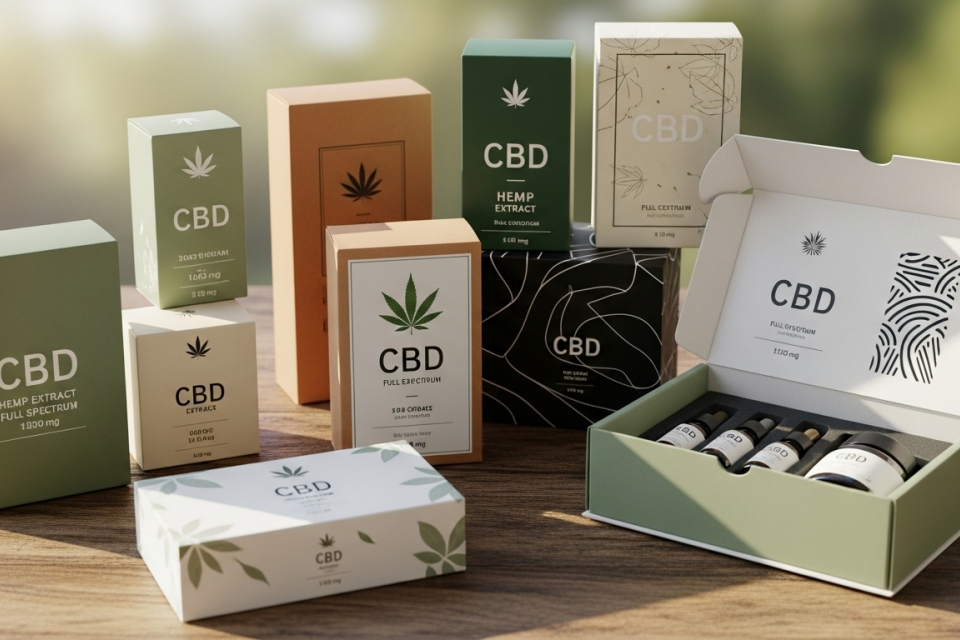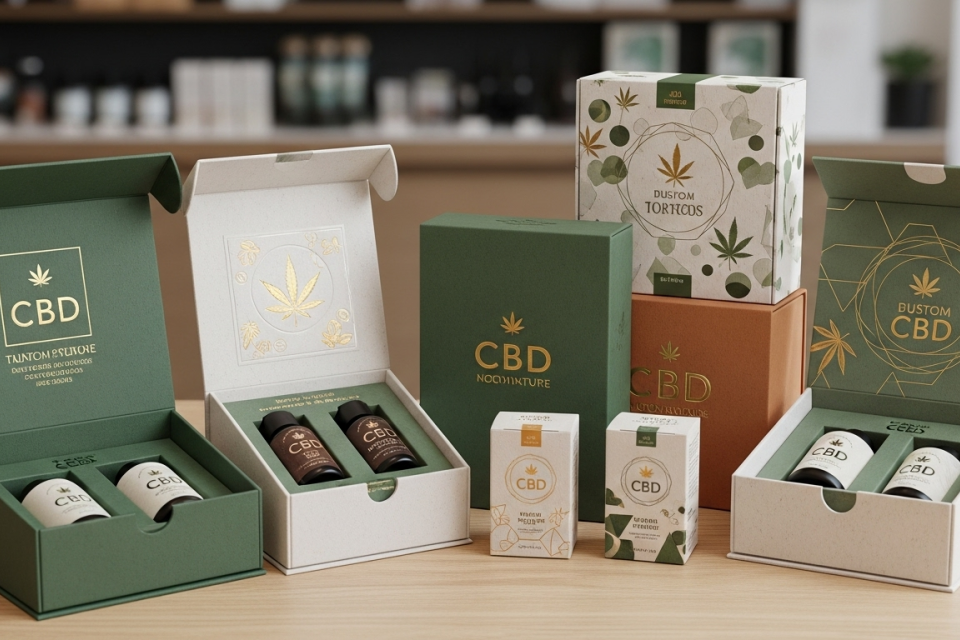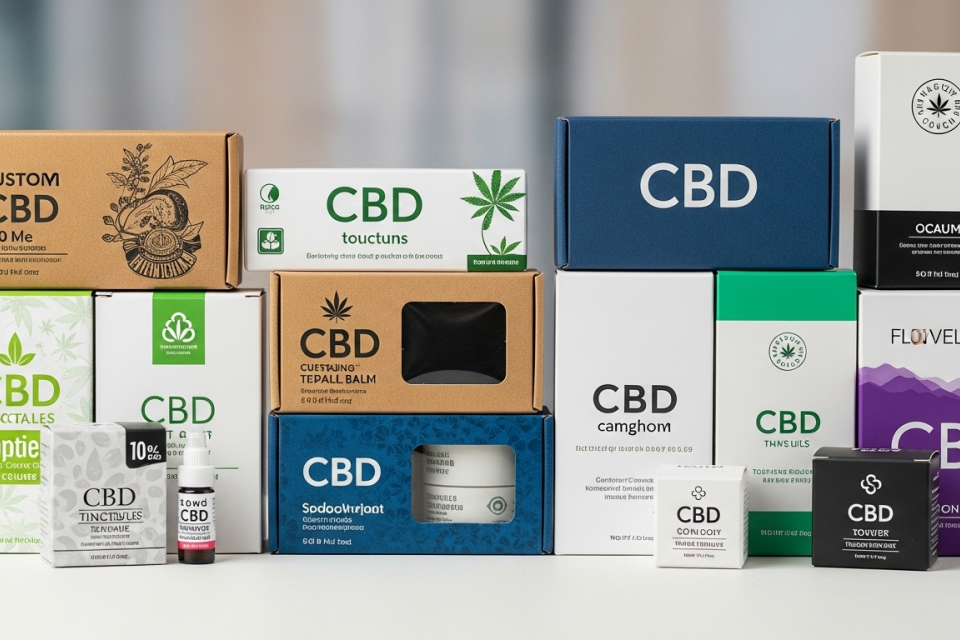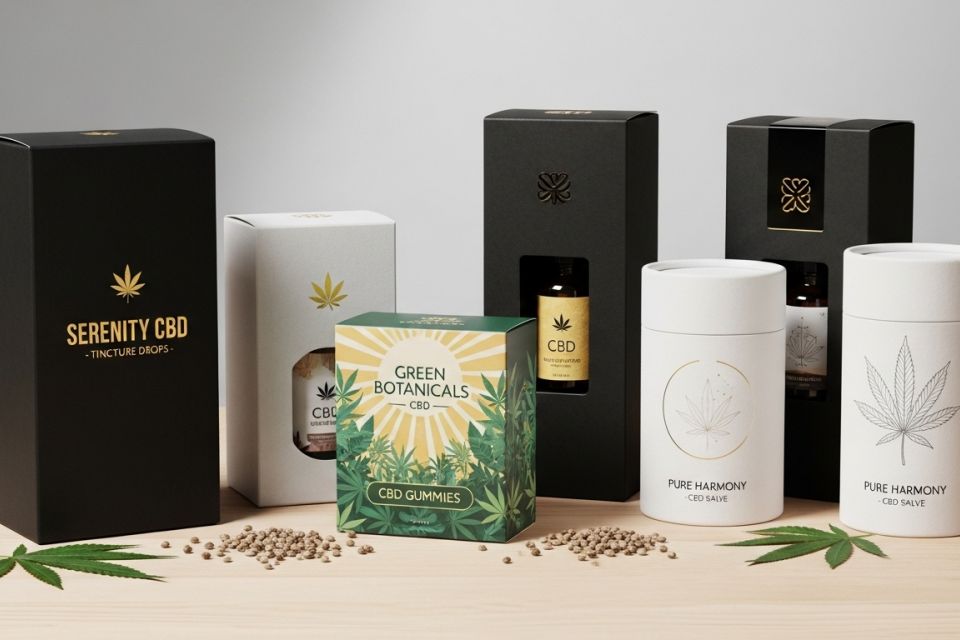Small Batch Packaging Solutions
This guide covers small batch packaging for niche brands, detailing its types, benefits like customization, and challenges including cost and sustainability.
Summary
Small batch packaging solutions refer to the production of packaging materials in limited quantities, catering specifically to businesses with unique needs such as product testing, niche markets, or seasonal demands. This approach is particularly advantageous for startups and boutique brands, as it allows for customized designs without the financial burden associated with large-scale production, thus fostering innovation and enhancing brand identity. As consumer preferences increasingly lean toward personalized and eco-friendly options, small batch packaging has emerged as a strategic choice across various industries, including food, pharmaceuticals, and cosmetics.
The rise of small batch packaging is closely linked to sustainability initiatives and consumer demands for more environmentally responsible practices. Recent advancements in biodegradable materials and energy-efficient manufacturing processes have transformed the landscape, enabling companies to adopt eco-friendly solutions that resonate with conscientious consumers. Furthermore, the integration of advanced technologies, such as digital printing and smart tracking systems, has streamlined production processes while enhancing the customization and authenticity of products.
Despite its numerous advantages, small batch packaging is not without challenges. Companies often encounter issues related to quality control, supply chain complexities, and higher per-unit costs compared to mass production. These challenges necessitate careful planning and resource allocation to ensure that packaging meets the desired standards and regulatory requirements while remaining cost-effective.
Notable trends within the small batch packaging sector include an increasing demand for personalized packaging, the rise of contract packaging services, and a focus on sustainable materials and practices. As businesses continue to embrace these solutions, small batch packaging is poised to play a significant role in shaping the future of product presentation and consumer engagement across diverse markets.
Table of Contents
Types of Small Batch Packaging Solutions
Overview of Small Batch Packaging
Small batch packaging involves producing packaging materials in limited quantities, catering to businesses with specific needs such as product testing, niche markets, or seasonal demands. This approach allows companies to create customized designs without the financial burden of large-scale production, making it an ideal choice for startups and boutique brands.
Key Packaging Types
Flexible Packaging
Flexible packaging encompasses materials like films and pouches that can conform to various product shapes. It is particularly economical regarding space and materials, making it suitable for items like coffee bags and snack pouches. This type of packaging is also often lightweight and can be made from recycled or biodegradable materials, appealing to environmentally conscious consumers.
Rigid Containers
Rigid containers, which include plastic tubs, glass jars, and sturdy boxes, provide excellent protection for delicate items that require a defined shape for presentation. These containers are favored for their durability and ability to safeguard contents during storage and transportation.
Eco-Friendly Options
Recent advancements in eco-friendly materials have transformed small batch packaging solutions. Biodegradable and recyclable options, including bioplastics and plant-based inks, are increasingly available. Energy-efficient manufacturing processes further enhance sustainability, allowing brands to meet environmental standards while appealing to eco-conscious consumers.
Custom Packaging Solutions
Custom packaging allows businesses to tailor their products’ presentation to align with brand identity. This can include bespoke box sizes, unique designs, and the incorporation of branding elements such as logos and colors. Custom packaging not only protects products but also serves as a powerful marketing tool, enhancing the overall consumer experience.
Industry Applications
Small batch packaging is particularly beneficial in industries such as specialty manufacturing, artisanal food production, and boutique product lines. By focusing on smaller order quantities, businesses can reduce waste and ensure their packaging aligns with their brand’s identity, making it a strategic choice for companies in these sectors.

Applications
Small batch packaging solutions are increasingly being utilized across various industries to meet specific consumer needs and market demands. These solutions are particularly beneficial for sectors that require customization, flexibility, and high-quality standards in their packaging processes.
Food and Beverage Industry
The food and beverage industry is witnessing a significant shift towards small batch packaging as producers focus on core operations while outsourcing packaging tasks to specialized co-packers. This trend allows manufacturers to streamline production processes and ensure compliance with food safety regulations. Co-packers are equipped to handle everything from raw material sourcing and formulation to bottling and labeling, catering to diverse product varieties including organic and functional beverages. As consumer preferences shift towards unique, artisanal offerings, small batch packaging enables brands to maintain quality and foster innovation.
Pharmaceutical and Biotech Industries
In the pharmaceutical and biotech sectors, small batch packaging plays a critical role in the production of sensitive formulations. Companies often face analytical and technological challenges that require careful consideration of drug-container interactions to ensure patient safety and efficacy. The use of ready-to-use (RTU) vials has gained popularity in clinical settings, allowing for aseptic manufacturing practices and better drug yields. For instance, modular, automated top-loading cartoners like the Dividella NeoTOPx machines can efficiently package vials and syringes, supporting both small-batch production and larger standardized runs.
Sustainable Packaging Solutions
Sustainability has become a crucial consideration in packaging across industries. Small batch solutions often prioritize environmentally responsible practices, employing materials such as biodegradable options and recycled content to reduce ecological footprints. Companies that adopt sustainable packaging not only address climate issues but also enhance their brand reputation among eco-conscious consumers. Innovations in this area include the use of upcycled materials, which help businesses meet regulatory requirements while minimizing waste and production costs.
Anti-Counterfeit Measures
With the rise of counterfeiting, especially in consumer goods, small batch packaging can integrate advanced technologies for product authentication. Solutions like QTRUST employ QR codes and cloud computing to allow brands to track items through the supply chain, enhancing consumer trust and safety. This capability is particularly valuable in markets where product integrity is paramount, ensuring that customers receive authentic products.

Advantages of Small Batch Packaging
Small batch packaging offers a variety of advantages that cater to the unique needs of businesses, especially those with specific market demands or fluctuating production requirements.
Flexibility and Customization
One of the primary benefits of small batch packaging is its unmatched flexibility. Businesses can easily adjust designs, materials, and sizes to meet specific requirements, making it particularly advantageous for seasonal promotions or limited-edition products. This adaptability allows for high-quality customization, enabling brands to incorporate unique branding elements such as logos, colors, and textures, which can significantly enhance the consumer experience during unboxing.
Eco-Friendliness
Small batch packaging is often more environmentally friendly compared to traditional bulk production methods. Many solutions utilize sustainable materials, thereby reducing the overall environmental impact associated with packaging. This is particularly important as consumers become increasingly aware of environmental issues and prefer brands that demonstrate sustainability in their operations.
Cost Efficiency
By producing packaging in limited quantities, businesses can reduce waste and save costs associated with large-scale orders. This method is especially beneficial for startups and boutique brands, as it lowers upfront costs and financial risks. It allows businesses to test new products or cater to niche markets without committing to significant inventory investments.
Improved Quality Control
Small batch production allows for a greater focus on quality control. With limited quantities, manufacturers can dedicate more attention to each batch, ensuring that every package meets high standards in terms of quality and design. This careful monitoring helps mitigate risks associated with human error, which can lead to increased costs and reduced efficiency if not properly managed.
Scalability
The flexibility inherent in small batch packaging supports scalability as businesses grow. As product lines expand or seasonal demands shift, companies can adapt their packaging strategies without the constraints of large inventory commitments. This capability ensures that packaging remains aligned with the evolving needs of the business and its customers.
Industry Applications
Various industries benefit from small batch packaging, including specialty manufacturing, artisanal food production, and boutique product lines. These sectors often require customized packaging solutions that reflect the unique attributes of their products, thus enhancing brand identity and consumer appeal.

Challenges in Small Batch Packaging
Small batch packaging, while offering numerous advantages, also presents several challenges that businesses must navigate to successfully implement this approach.
Quality Control
Maintaining consistent quality across various small batch products can be difficult. The customization aspect often leads to variations in production that can affect product integrity and customer satisfaction. Businesses must implement robust quality control measures to ensure that each batch meets the desired standards and adheres to industry regulations, which can require additional resources and planning.
Supply Chain Complexity
One of the primary challenges in small batch packaging is managing a complex supply chain. Businesses often face intricate networks involving multiple suppliers, manufacturers, and distribution channels. This complexity can lead to difficulties in minimizing lead times and optimizing inventory levels, which are crucial for meeting tight deadlines and reducing costs. Additionally, fluctuations in demand for limited edition or seasonal products can complicate inventory management further, necessitating agile responses to changing market conditions.
Cost Considerations
Although small batch packaging allows for customization and reduces waste, it can also result in higher per-unit costs compared to mass production. This is particularly evident in industries where economies of scale significantly impact pricing. For smaller businesses and startups, the need to balance quality with cost can pose a financial strain, especially if initial investments in high-quality materials and unique designs are required.
Technology Integration
The integration of modern technologies into small batch packaging processes can also be challenging. Many businesses may rely on older machines that are not compatible with new digital solutions, leading to inefficiencies in tracking and managing inventory. Moreover, the lack of standardized communication protocols between different equipment can further complicate operations, making it time-consuming and costly to implement advanced packaging solutions.
Environmental Sustainability
As the demand for eco-friendly packaging grows, small batch producers must also contend with sourcing sustainable materials. Finding cost-effective options like recycled paperboard or sustainable plastics can be challenging amid rising raw material costs. Companies need to establish strong relationships with suppliers to ensure the availability of such materials while balancing their environmental commitments with financial realities.

Trends in Small Batch Packaging
Sustainability Initiatives
Sustainability has become a crucial focus within the small batch packaging industry. Companies are now prioritizing eco-friendly materials and manufacturing processes to meet modern environmental standards. The introduction of biodegradable, recyclable materials, and innovations in bioplastics and plant-based inks are transforming packaging practices. Additionally, energy-efficient production methods and minimalist designs are being adopted to minimize waste and reduce carbon footprints, appealing to the increasing number of eco-conscious consumers.
Increasing Demand for Customization
The trend toward personalized packaging is rapidly gaining momentum, driven by consumer preferences for unique and tailored experiences. Businesses are increasingly recognizing the importance of customization in packaging design, which enhances the unboxing experience and fosters brand loyalty. This growing demand for bespoke solutions allows companies to reflect their brand identity while addressing the specific tastes of their target audience.
Advancements in Printing Technology
Recent advancements in printing technologies have made it easier for businesses to produce high-quality, small batch packaging. Digital printing techniques allow for precise customization and short production runs, enabling brands to create visually appealing packaging without the financial burden of mass production. This shift not only enhances the aesthetic quality of packaging but also streamlines the production process, making it more efficient.
Flexibility in Production
Small batch packaging offers unparalleled flexibility, catering to businesses that require shorter order volumes for product testing, niche markets, or seasonal demands. This adaptability allows companies to quickly pivot their packaging strategies in response to market trends or consumer feedback, reducing waste and financial risk associated with larger orders. The ability to modify designs, materials, and sizes ensures that packaging can evolve alongside a brand’s changing needs, particularly beneficial for startups and boutique brands.
Rise of Contract Packaging Services
As small batch packaging becomes increasingly popular, many brands are turning to contract packaging and co-packing services to streamline operations. These services offer advanced packaging solutions that help businesses focus on their core activities while leveraging expertise in design and supply chain management. By collaborating with contract packagers, brands can access state-of-the-art technology and customized packaging solutions that facilitate sustainable growth.
Key Players in the Industry
In the rapidly evolving landscape of small batch packaging solutions, several key players stand out due to their specialized offerings and industry expertise. These companies cater to a variety of sectors, including food, pharmaceuticals, cosmetics, and chemicals, providing tailored solutions that meet specific customer needs.
Contract Packaging Providers
Contract packaging providers play a pivotal role in the small batch packaging sector. These firms leverage their industry knowledge and expertise to deliver efficient and effective packaging solutions. By outsourcing packaging processes, companies can focus on their core competencies, allowing for enhanced innovation in product development and resource allocation toward value-creating activities.
Advantages of Outsourcing
Outsourcing packaging functions to specialized providers allows organizations to benefit from advanced technologies and compliance expertise. Providers often utilize innovative technologies such as RFID for product tracking and automation systems to improve efficiency and reduce costs. This not only enhances operational capabilities but also ensures adherence to stringent regulatory requirements, which is particularly vital in industries like pharmaceuticals and food.
Established Industry Leaders
Among the prominent players in the small batch packaging market are companies with a rich history and a solid reputation for high-quality service. For instance, a well-established Italian firm specializes in complete packaging systems for various sectors, demonstrating significant experience and a strong market presence. These companies not only possess state-of-the-art machinery and skilled labor but also have a robust network of loyal customers that support stable revenue streams and growth potential.
Emerging Technologies
The integration of smart technologies such as artificial intelligence, robotics, and the Internet of Things is reshaping the packaging industry. These innovations are driving the sector toward increased automation and eco-friendly solutions, thereby addressing the growing demand for sustainable packaging practices. As such, companies that adopt these technologies are positioned to gain a competitive advantage and respond effectively to market trends.
